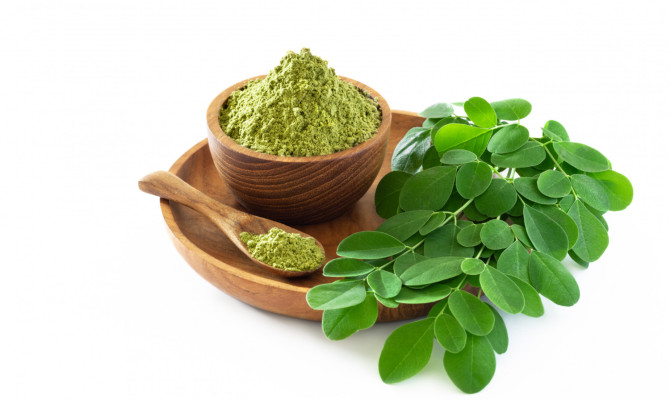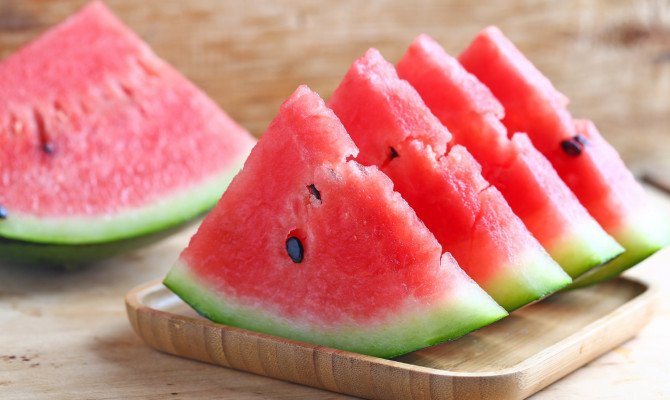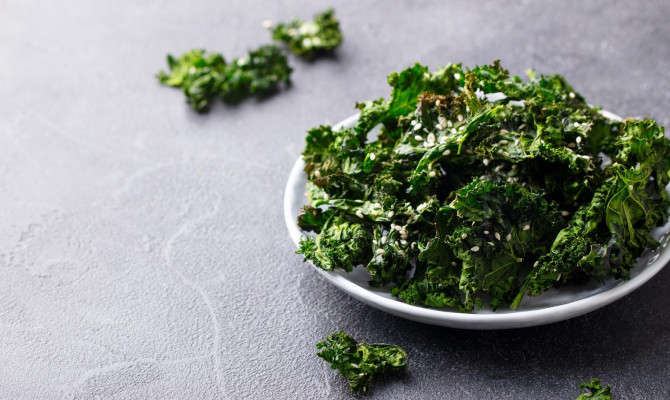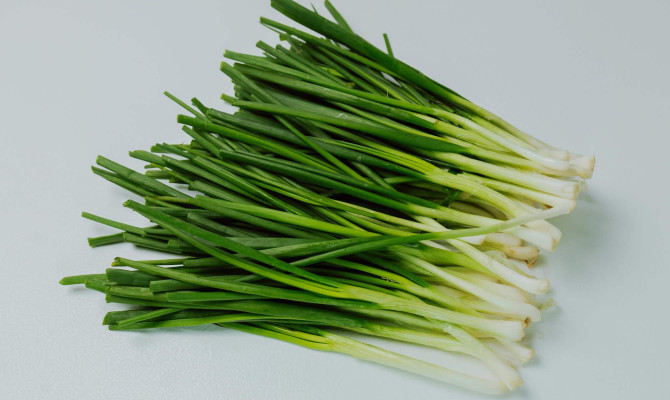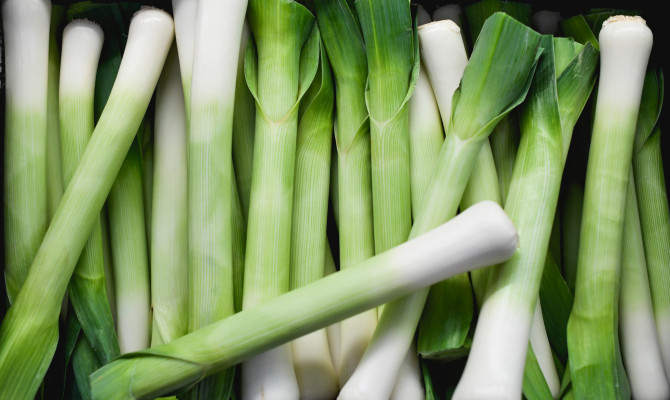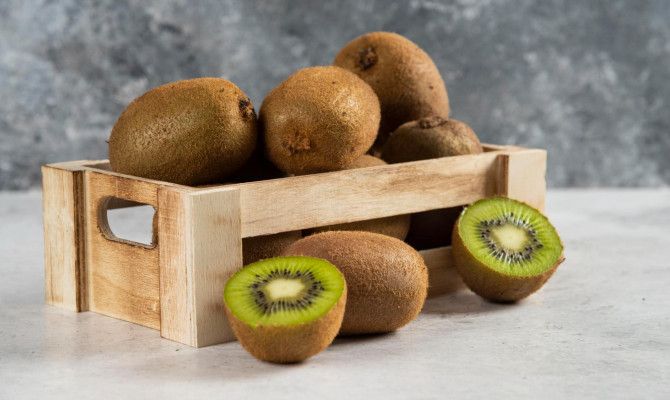All About Nutrition and Health Benefits of Cauliflower

- Cauliflower
- 17 Aug 2023
Overview
What is Cauliflower?
Cauliflower is a delicious cruciferous vegetable like cabbage and broccoli and belongs to the same family Brassicaceae (mustard family) . Cauliflower consists of tightly bunched florets connected with a thick core with few leaves surrounding it. Cauliflowers are often white, but other colors exist, such as green, purple, and orange.
Regardless of color, all cauliflowers taste the same and have a mild, sweet, and nutty flavor. Cauliflower is a versatile vegetable with many health benefits and can be consumed in numerous forms. Usually, only the white floret head is eaten, but the stems and the leaves are also edible.
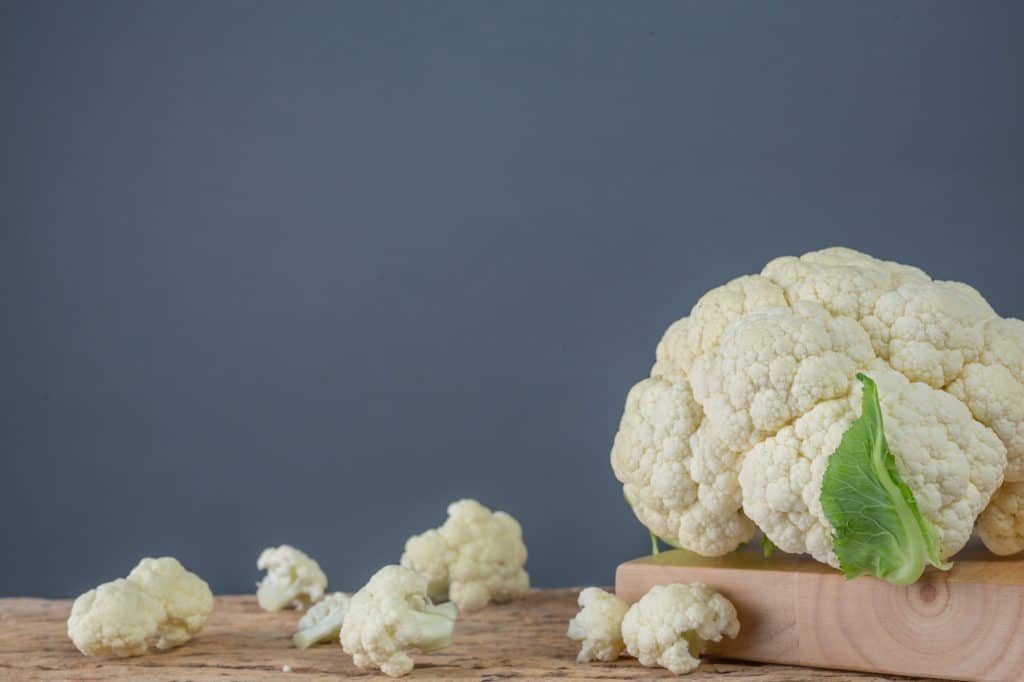
Facts of cauliflower
- Cauliflower is indigenous to the Mediterranean region but is now grown worldwide.
- It is an annual plant that is grown from the seed and it is a cold weather crop that best grows from 21 to 29 degrees centigrade.
- Cauliflower is hard to cultivate compared to cabbage due to common problems such as underdeveloped poor, quality white florets1Overview| Researched based study from Sciencedirect.com
Nutrition
Nutrition in Cauliflower
Cauliflower consists of 92% water; the rest 8% contains minerals and vitamins. Cauliflower is very low in calories.
The nutrients present in 107 grams of raw cauliflower are as follows:
- Calories-27
- Fiber-2 gm (gram)
- Vitamin K-14% of DV (percent daily value)
- Vitamin C-58% of DV
- Vitamin B9 (Folate) -15% of DV
- Vitamin B6(Pyridoxine)-12% of DV
- Vitamin B5(Pantothenic acid)-14% of DV
- Manganese-9% of DV
- Potassium-7% of DV
- Phosphorus-4% of DV
- Magnesium -4% of DV
- Choline-8% of DV
The daily value (DV) is the reference amount to consume every day
The % daily value (%DV) is the daily value percentage for each nutrient in a food serving.
Fiber, vitamins, and minerals performs the following function in our body
Fiber
- It helps soak up water and speed up the movement of stool in the intestine
- It improves gut health and prevents constipation
Vitamin K
- Vitamin K is for the healing (blood clotting) process in our body
- It promotes the bone health
Vitamin C
- Vitamin C is crucial for the growth and restoration of the tissues and vital for healthy skin and bones
Vitamin B9 (Folate)
- It is needed for the production of white and red blood cells
- It helps in usual tissue growth and cell execution
Vitamin B6 (Pyridoxine)
- Vitamin B6 is crucial for proper brain functioning
- It keeps the immune system and nervous systems healthy
Vitamin B5 (Pantothenic acid)
- It helps in the conversion of food to energy
- It is vital for making blood cells
Manganese
- Manganese helps bodily processes to function correctly
- It helps build-up of the bones
Potassium
- It is crucial for correct nerve and muscle functioning
- It is indispensable for regulating the blood pressure in our body
Phosphorus
- It is necessary for healthy bones and teeth
- It helps activate several enzymes and maintains the normal blood pH
Magnesium
- It supports the muscles and nerve functions
- It also maintains the normal bone health
Choline
- Choline helps in normal bodily functions
- It is also essential for normal brain development, liver, and nerve function 2Nutrition| Researched based study from Usda.gov
Bioactive compounds in cauliflower
Carotenoids
- Carotenoids are natural pigments present in the plants
- It has antioxidant properties and reduces the risk of diseases
Flavonoids
- Flavonoids are phenolic compounds found in plants
- It has anti-cancer and anti-inflammatory properties
Glycosinolates
- Glycosinolates are natural substances found in cruciferous vegetables
- It has anti-cancer properties
- It reduces the risk of chronic diseases
Isothiocyanates
- Isothiocyanates are natural compounds found in vegetables
- It has anti-cancer and antioxidant properties
Sulforaphane
- Sulforaphane is a compound present in cruciferous vegetables
- It has antioxidant, anti-cancer, and anti-diabetic properties 3Nutrition| Researched based study from Nlm.nih.gov
Health Benefits
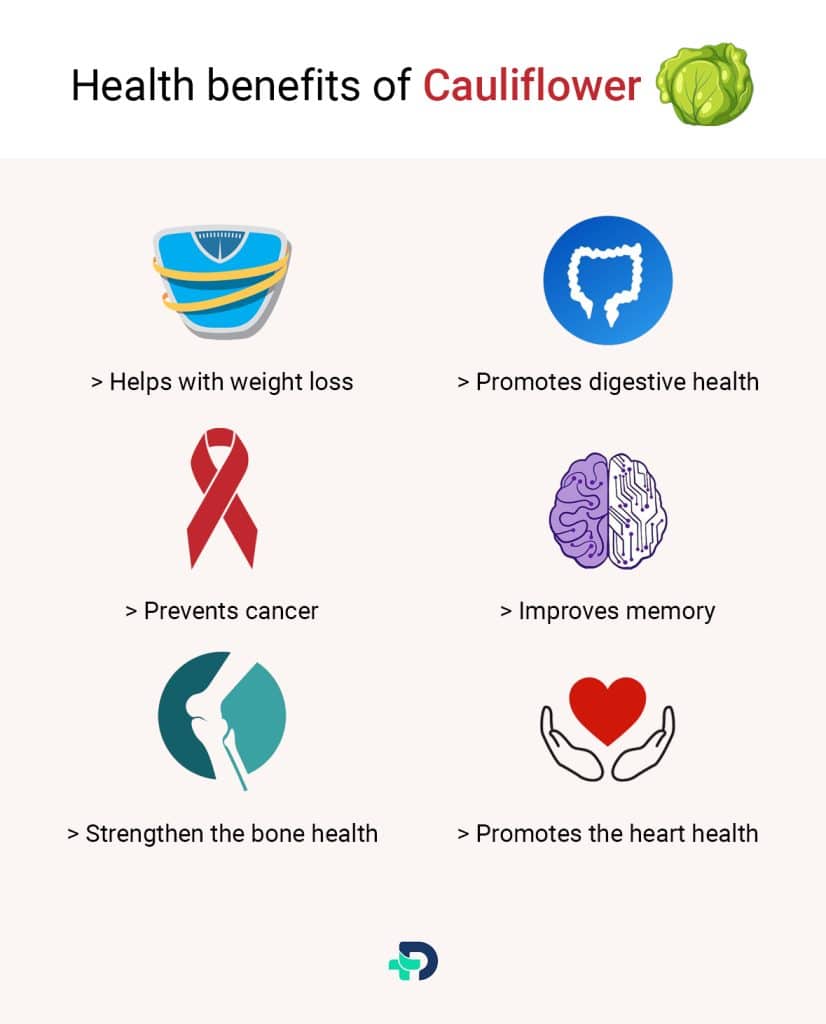
Health benefits of Cauliflower
Cauliflower has the following health benefits:
- Helps with weight loss
- Promotes digestive health
- Prevents cancer
- Improves memory
- Strengthen the bone health
- Promotes the heart health
Helps with weight loss
- Fibers in cauliflower slow the digestion
- It keeps the stomach full and prevents calorie intake in subsequent meals 4Health benefits| Researched based study from Nlm.nih.gov
Promotes digestive health
- Fibers in cauliflower promote the growth of good bacteria
- It regularizes the bowel movement 5Health benefits| Researched based study from Nlm.nih.gov
Prevents cancer
- Nutrients in cauliflower prevent the development of abnormal cells
- It reduces the risk of breast, lung, and colon cancer 6Health benefits| Researched based study from Nlm.nih.gov
Improves memory
- Choline in cauliflower helps in learning and memorizing
- It reduces the risk of memory disorders 7Health benefits| Researched based study from Nlm.nih.gov
Strengthen the bone health
- Nutrients in cauliflower improve bone mass and prevent fractures
- It reduces the risk of osteoporosis 8Health benefits| Researched based study from Nlm.nih.gov
Promotes the heart health
- Bio actives of cauliflower lower the blood pressure
- It reduces the risk of heart diseases 9Health benefits| Researched based study from Nlm.nih.gov
Dosage of cauliflower
- The dose of cauliflower depends on several factors, such as the person’s age and medical condition. There needs to be more research to determine the appropriate amount of cauliflower.
- One must ensure to follow the product label or consult a healthcare professional before using it in medicinal amounts.
Side effects
Side effects of Cauliflower
Consuming cauliflower in food amounts is both safe and healthy for most people. However, some people might experience the following side effects:
- Itching
- Skin rash
- Hives
- Swelling in the face, mouth, lips, and tongue
- Difficult breathing
Overeating of cauliflower may cause following health issues:
Most people can tolerate cauliflower when taken in moderate amounts. However, consuming an excess amount of cauliflower can cause the following problems.
Stomach gas (bloating) and flatulence
- High-fiber food like cauliflower usually causes stomach gas and flatulence.
- People increasing their fiber intake for health purposes should increase it gradually, as rapid increase might cause bloating and flatulence.
Thyroid problem
- The thyroid is a small gland in the neck that needs iodine to function. Consuming too much cauliflower might hamper the iodine absorption by the thyroid gland and prevent its correct functioning. So, one must avoid overeating cauliflower in one sitting.10Side effects| Researched based study from Nlm.nih.gov
Digestion issues
- Cauliflower is also high in FODMAP (fermentable oligosaccharide, disaccharide, monosaccharide, and polyols).FODMAP is a type of sugar that the small intestine absorbs poorly. So people with digestive issues should limit cauliflower consumption to avoid unwanted effects
Contraindications
Who should avoid eating Cauliflower?
- Who are allergic to the cruciferous vegetable
- if allergic to mug wort pollen
- One with thyroid problems
- One with irritable bowel syndrome or inflammatory bowel disease
- People with Crohn’s disease (a chronic disease that causes digestive tract inflammation )
- If having ulcerative colitis(a disease that causes ulcers in the colon)
- People with heart problems 11Contraindications| Researched based study from Nlm.nih.gov
Precautions of cauliflower
- Pregnant women and nursing mothers can consume cauliflower in food amounts. But there needs to be adequate information to determine if cauliflower is safe when consumed in large amounts as medicines.
Storage
Storage & Selection of Cauliflower
Storage of Cauliflower
- One can keep the unwashed raw cauliflower in a pierced plastic bag in the refrigerator for around four to five days.
- One must keep the stem up to avoid forming condensation on the head portion.
- Moisture on the cauliflower’s head can lead to discoloration, mold development, and decay.
Selection of Cauliflower
- One can purchase fresh, pickled, or creamed cauliflower from the farmer’s market or grocery store all year round.
- While buying, select the new, firm, clean head with compact bud clusters and bright green leaves. Always avoid soft, yellow, discolored, or loose florets with brown spots.
- Yellowing of the florets indicates over-mature cauliflower
Tips
Tips to include Cauliflower in the diet
- Cut the raw cauliflower florets and add it to salads
- Cook the grated cauliflower and consume it as cauliflower rice
- Mash cauliflower as a replacement for mashed potatoes
- Roast cauliflower for crispy cauliflower wings and have it as a side dish
- Blend boiled cauliflower with dough to make delicious pizzas
- Add cauliflower instead of chickpeas to have a low-calorie hummus
- Add cooked cauliflower to soups to enhance the taste
- Mix cauliflower with yeast and spices to make a dairy-free sauce
- Bake cauliflower in the cheese sauce and have it as cheese sauce
- Fry cauliflower until deep brown and enjoy it as a side dish with rice meal
One can also boil cauliflower to use it in recipes, but boiling reduces certain nutrients such as vitamin B, vitamin C, and antioxidants.
Interactions
Interactions of Cauliflower
- Cytochrome P450 1A2 is a medication that is broken down by the liver
- Taking cauliflower and Cytochrome P450 1A2 viz; fluvoxamine together might increase the liver’s breaking ability and thus might decrease the drug’s efficiency 12Interactions| Researched based study from Nlm.nih.gov
- Moreover, people on blood thinning medication should avoid eating large amounts of cauliflower as it might affect the drug’s efficiency.
Takeaway
Key Takeaways
- Cauliflower is a tasty, nutritious, low-calorie vegetable with multiple health benefits.
- It is an excellent source of several minerals and vitamins
- It has distinctive antioxidants that protect against cancer and heart diseases
- Cauliflower is convenient to prepare and can be an excellent addition to a balanced diet.
Any feedback on this article?
 This Articles content was accurate
This Articles content was accurate Very Informative Article
Very Informative Article I have a question or a comment
I have a question or a comment
 This article contains inaccurate content
This article contains inaccurate content This article was not helpful
This article was not helpful I have a question or a comment
I have a question or a comment
We appreciate your helpful feedback!
Checkout our social pages
References
-
Science Direct
Cauliflower : An Overview | Overview
-
U.S. DEPARTMENT OF AGRICULTURE
Cauliflower, raw | Nutrition
-
National Library of Medicine
Glucosinolates From Cruciferous Vegetables and Their Potential Role in Chronic Disease: Investigating the Preclinical and Clinical Evidence | Nutrition
-
National Library of Medicine
The Health Benefits of Dietary Fibre | Benefits
-
National Library of Medicine
Dietary Fibre Modulates the Gut Microbiota | Benefits
-
National Library of Medicine
Brassica vegetables and cancer prevention. Epidemiology and mechanisms | Benefits
-
National Library of Medicine
The relation of dietary choline to cognitive performance and white-matter hyperintensity in the Framingham Offspring Cohort | Benefits
-
National Library of Medicine
Nutritional Aspects of Bone Health and Fracture Healing | Benefits
-
National Library of Medicine
Cardiovascular Health Benefits of Specific Vegetable Types: A Narrative Review | Benefits
-
National Library of Medicine
Role of dietary iodine and cruciferous vegetables in thyroid cancer: a countrywide case-control study in New Caledonia | Side effects
-
National Library of Medicine
Addressing the Role of Food in Irritable Bowel Syndrome Symptom Management | Contraindictions
-
National Library of Medicine
The Effects of Cruciferous Vegetable-Enriched Diets on Drug Metabolism: A Systematic Review and Meta-Analysis of Dietary Intervention Trials in Humans | Interactions












